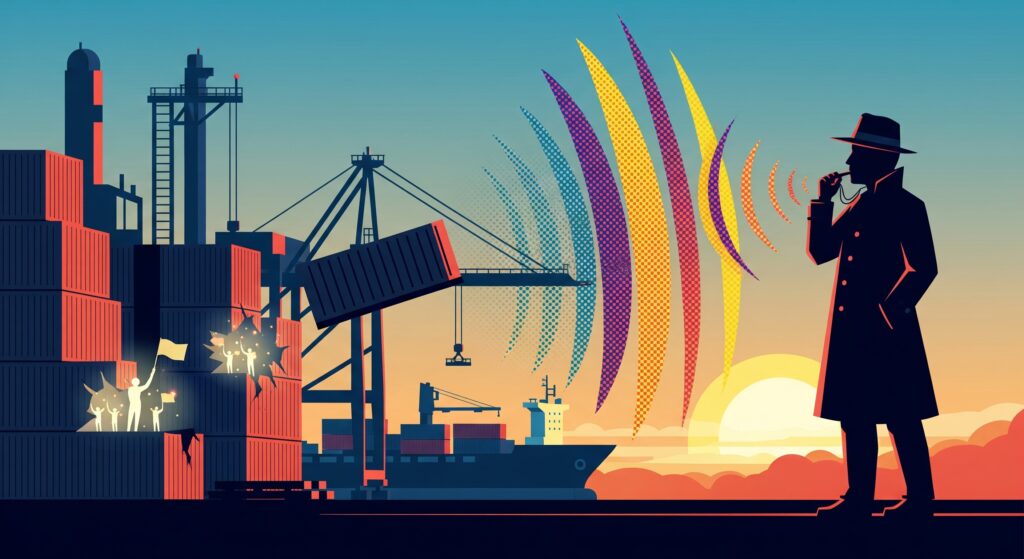The Trump administration’s escalating tariff policies are creating unprecedented incentives for customs fraud while simultaneously spurring aggressive government enforcement efforts, according to trade attorneys witnessing a dramatic uptick in both violations and whistleblower complaints.
Legal experts report that clients are flooding them with inquiries about navigating the increasingly blurred lines between legitimate tariff avoidance strategies and illegal evasion schemes. The combination of higher duties and the Justice Department’s renewed focus on trade-related prosecutions has created what attorneys describe as a enforcement perfect storm.
“You have a broad swath of industry that is highly incentivized to find a way out of this,” explained Jake Shields, a Gibson Dunn partner. “Many will do so lawfully, and others will do things that are close to the line—or cross it—and may get them in trouble with the Department of Justice.”
Common illegal evasion tactics include product misclassification, such as labeling nightstands as living-room furniture to qualify for lower rates, understating merchandise values, and falsifying country-of-origin documentation. However, companies can employ similar strategies legally when products legitimately qualify for multiple classifications or when they restructure supply chains to take advantage of preferential trade arrangements.
The heightened stakes have captured executive attention in unprecedented ways. “I’ll have CEOs sit in on phone calls on tariff risk management,” noted Gregory Husisian, a Foley & Lardner partner, describing a level of C-suite engagement previously absent from customs compliance discussions.
Justice Department officials have designated trade fraud prosecution as a priority area, with Criminal Division official Matthew Galeotti writing in May that “trade and customs fraudsters, including those who commit tariff evasion, seek to circumvent the rules and regulations that protect American consumers.”
The department has expanded its corporate whistleblower program to encompass tariff and customs violations, while simultaneously encouraging private enforcement through False Claims Act litigation. Whistleblower attorney Ari Yampolsky reports receiving double his usual volume of calls since Trump began announcing tariff policies.
These cases often originate not from company insiders but from competitors seeking market fairness. “I have had calls from businesses saying, ‘I think one of our competitors is cheating, and I need help getting the government to do something about it,'” said whistleblower attorney Jonathan Tycko.
Historical data suggests significant enforcement potential ahead. Husisian noted that the Justice Department secured favorable outcomes in approximately 30 customs-related False Claims Act cases over the past 15 years, with case numbers expected to surge as higher tariffs increase both violation incentives and potential recovery amounts.
Criminal prosecutions, while historically rare, are becoming more frequent and severe. A federal judge recently sentenced a Florida couple to nearly five years in prison for evading tariffs on tens of millions of dollars worth of plywood through an elaborate country-of-origin deception scheme involving transshipment through Malaysia and Sri Lanka.
Trade attorneys are adapting their practices accordingly. Florida trade lawyer Jennifer Diaz said her firm is expanding its criminal law capabilities to meet anticipated demand. “To have this topic being front page news on a daily basis is a trade lawyer’s dream,” she observed.
The developing enforcement landscape reflects the broader economic tensions created by aggressive trade policies, where legitimate business optimization strategies increasingly risk crossing into criminal territory as financial stakes continue escalating.


